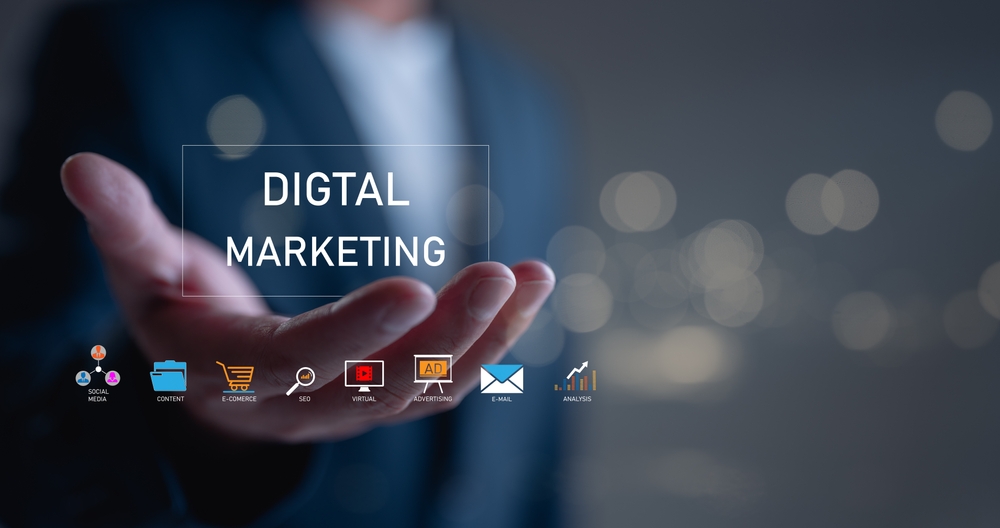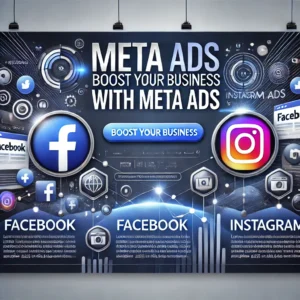As we move further into a hyperconnected world, digital marketing will evolve rapidly, blending technology, creativity, and human-centric design. Here’s what the next decade is shaping up to look like:
AI-Driven Everything
Artificial Intelligence won’t just support marketing—it will lead it.
Marketing tools powered by AI will automate tasks, generate content, and make real-time decisions. AI will write ad copy, design visuals, predict customer behavior, optimize campaigns, and even carry out conversations via chatbots. Marketers will rely on AI not just to save time, but to create smarter, more precise strategies. Expect entire campaigns—copy, visuals, delivery—to be AI-generated, tested, and optimized without human intervention.
Hyper-Personalization at Scale
Forget targeting by demographics—this is the era of individual-level marketing.
With advanced data analytics and AI, brands will understand not just what users do, but why they do it. Real-time behavior, purchase intent, sentiment analysis, and context will drive ultra-personalized experiences. Every ad, email, product recommendation, and website view will be tailored to the individual. Personalization will extend beyond content to delivery timing, platform, and even device preferences.
The Rise of Voice & Visual Search
The way people search is changing—text is no longer the default.
By 2030, voice and visual search will account for a major share of digital interactions. Optimizing for voice search means adapting to natural, conversational queries, while visual search will allow users to upload photos or scan products to find exact matches online. Brands will need to redesign their SEO strategies to accommodate these modalities, ensuring their content is accessible in a world where users search with their camera or voice assistant.
Augmented & Virtual Reality Experiences
AR and VR will transform passive consumers into active participants.
Augmented Reality will let customers try on clothes, test furniture placement in their homes, or preview makeup virtually. Virtual Reality will take things further, offering immersive brand experiences like VR shopping malls, interactive showrooms, and virtual events. Brands will use these technologies to create memorable, engaging interactions that blend digital with physical.
Privacy-First & Ethical Marketing
With growing concerns about data misuse, trust will become a currency.
Governments will tighten regulations around user data, and customers will demand more transparency and control. Marketers will move away from third-party data toward first-party and zero-party data—collected directly and consensually from users. Privacy-first strategies, clear opt-ins, and ethical data usage will become not just a legal requirement, but a competitive advantage.
Web3 & Decentralization
The next version of the web—Web3—will reshape the internet’s power dynamics.
In Web3, users control their data, identities, and content. Blockchain will enable transparent and verifiable ad metrics. Brands may issue NFTs as part of loyalty programs, exclusive content access, or limited product releases. Decentralized platforms will reduce dependency on tech giants, allowing brands to build direct relationships with communities. Expect marketing strategies to incorporate digital wallets, DAOs (Decentralized Autonomous Organizations), and token-based incentives.
Content Reinvented: From Video to Virtual Influencers
Content will remain king, but it will wear a different crown.
Short-form video will continue to dominate (think TikTok, Reels, Shorts), but new formats will emerge. AI-generated content will be indistinguishable from human-created content. Virtual influencers—entirely synthetic personas—will represent brands, attract followers, and engage audiences. Live streaming will merge content and commerce, allowing users to buy products during live demos or Q&A sessions.
Values-Based & Sustainable Marketing
Consumers will align with brands that stand for something more than profit.
Environmental sustainability, social justice, diversity, and inclusivity will be non-negotiable. Marketing campaigns will focus on real impact, ethical sourcing, carbon-neutral efforts, and transparency. Authentic storytelling and cause-based marketing will deepen brand loyalty, especially among Gen Z and Generation Alpha, who prioritize purpose over price.
Seamless Omnichannel Experiences
Omnichannel marketing won’t just be about being everywhere—it’ll be about connecting everything.
Whether a customer starts their journey on a smartwatch, continues it on a mobile app, and completes it in-store, their experience must be consistent and seamless. Marketers will use unified customer data platforms (CDPs) to deliver integrated experiences across all channels—social media, email, web, voice, IoT devices, and physical locations. Smart devices, wearables, and even AR glasses will be part of the marketing funnel.
Instant Gratification & Micro-Moments
Attention is the new currency—and it’s in short supply.
People want answers, products, and services in the moment. These “micro-moments”—when users turn to their devices with high intent—will be critical touchpoints. Marketers will need to anticipate needs, respond instantly, and remove every barrier to conversion. Think fast-loading pages, one-click purchases, voice-activated support, and AI-powered customer service that acts in real time.
Final Thought
The decade ahead will be defined by innovation, automation, and personalization—but also by trust, ethics, and experience. Digital marketing in 2025–2035 won’t just be about selling; it will be about creating value-driven, human-centered interactions at every touchpoint.
Also Read: Guide to Become a Successful Digital Marketing Strategist





